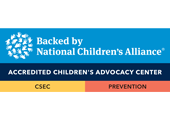Sending Children Back to School Safely
August 16, 2025
Back to school shopping is underway, school and bus schedules are coming together, figuring out sports and after-school activities is an extra jigsaw puzzle thrown into the mix. The rush to squeeze out every last ounce of summer is here. However, somewhere in the middle of it all we hope you can take the time to look at what conversations about safety in the new school year could look like. We want to provide you with some suggestions for how you can engage your child, and their school, in these important conversations.
School Safety Guidelines
Do you know the child abuse prevention policies in your child’s school? How does the school focus on prevention? Do they incorporate safety into their hiring process? Are staff provided with training on prevention and recognizing signs of abuse and how to report it? Do they regularly evaluate if their building has a safe environment which minimizes opportunities where students are not able to be seen? If you don’t know the answer to one, or any of these questions, please inquire with your child’s school administration. Talk with your child about talking with you if they have any situation happens at school where they don’t feel safe.
Technology
Schools and technology now operate hand in hand, even at the elementary school level. While schools have installed online safeguards for children, there are many ways to navigate around such precautions. Children may find themselves in a situation they did not intend or fully understand. Talk with your child’s school about what safeguards are in place, and how online safety is discussed in school. Talk to your children about online safety, and the risks which exist, even on games and social apps.
Three Trusted Adults
Talk with your children about identifying three trusted adults who are in their lives, other than parents and caregivers. Explain that these three adults would be someone who they would go to if something happened if they felt unsafe, embarrassed, or unsure of what to do. This gives children the reassurance that they can ask for help outside of their immediate family. It also tells you, as a parent, who the important adults in their lives are..Get to know their names and take advantage of parent-teacher nights and socials to meet these individuals, and show you are an engaged and informed parent.
Consent
Talking with children about consent is something which should begin early and repeated often. Not only about sex, but about being hugged, touched, sharing toys or food, or sharing information. Remind your children that they are in charge of their bodies and choices, and no one should pressure them to do something they don’t want to do. This extends to relationships with peers, teachers, and other adults in their school. If we can communicate this with children earlier, later it will be an easier conversation about dating, online safety and sex.
Have Conversations Without Judgment
It is important for children and teens to know that if they make a mistake, they can have a calm non-judgmental conversation with their parents and ask for help. Children need to know their parents will always believe in them, advocate for them, and put their health and safety first. Ongoing and regular conversations about safety with kids and teens will help them feel supported, can provide reassurance, and increase their likelihood of asking for help.
These are just some of the ways you can talk with children and teens about safety as they return to school. If you would like to learn more, please email our Community Programs Coordinator Heidi Friedel at heidi.friedel@childrenscove.org. If you would like to learn more about online safety, please email our Child Exploitation Program Coordinator Anna Colby at anna.colby@childrenscove.org.






